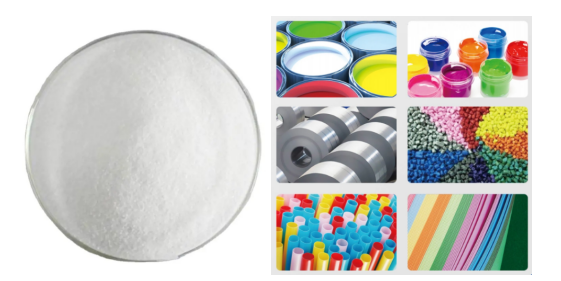
Dec . 25, 2024 13:36 Back to list
Supplier of Rutile Titanium Dioxide Powder for Industrial Applications and Manufacturing
The Role of Rutile Titanium Dioxide in Modern Industries An Overview of Leading Suppliers
Rutile titanium dioxide, known for its exceptional whiteness and excellent opacity, plays a crucial role in various industries, including paints, coatings, plastics, and cosmetics. As an essential pigment, it is derived from titanium, a metal that is not only abundant but also versatile. The production of high-quality titanium dioxide powder, specifically rutile grade, involves advanced manufacturing processes that require skilled expertise and state-of-the-art technology. In this article, we will explore the significance of rutile titanium dioxide powder, the processes involved in its manufacture, and the value of sourcing from reputable suppliers.
What is Rutile Titanium Dioxide?
Rutile titanium dioxide is one of the three main forms of titanium dioxide, the others being anatase and brookite. Rutile is the most thermodynamically stable form and possesses superior qualities, such as higher refractive index and better durability. These properties make rutile titanium dioxide the preferred choice for many applications. Its ability to effectively scatter light and provide excellent coverage results in brighter, more vibrant products.
Due to its excellent UV-resistance and chemical stability, rutile titanium dioxide is widely used in coatings and plastics. In the manufacturing of paints, it provides not only color but also a protective barrier against environmental damage. In the cosmetics industry, it serves as a whitening agent and a thickener, crucial for the formulation of products like sunscreen and foundation.
Manufacturing Processes of Rutile Titanium Dioxide
The production of rutile titanium dioxide generally involves two primary methods the sulfate process and the chloride process. The sulfate method utilizes titanium ore, which is treated with sulfuric acid to create titanium sulfate. This solution is then hydrolyzed, with the resulting titanium dioxide being subsequently calcined to produce the desired rutile form.
Conversely, the chloride process involves reacting titanium ore with chlorine gas at high temperatures to produce titanium tetrachloride. This compound is then oxidized to form titanium dioxide. The chloride process is known for producing purer products and is generally more cost-effective in large-scale production.
factory tio2 powder rutile titanium dioxide supplier

Both methods require strict quality control and advanced technology to ensure that the final product meets the industry standards for purity, particle size, and opacity. Leading suppliers invest heavily in research and development to enhance these processes, resulting in efficient production and superior quality.
Choosing a Reliable Supplier
When sourcing rutile titanium dioxide powder, it is crucial to choose a supplier who prioritizes quality and sustainability. A reliable supplier should provide detailed information about their manufacturing processes, quality control measures, and product specifications. Certifications such as ISO can also be indicators of a supplier’s commitment to quality.
In addition to product quality, the sustainability practices of a supplier must also be taken into account. With increasing awareness of environmental issues, suppliers who employ eco-friendly practices in their production processes will be more favorable. This includes responsible sourcing of raw materials, waste management practices, and energy-efficient production methods.
Furthermore, a good supplier will offer flexibility in meeting customer needs, including providing various grades of rutile titanium dioxide for specific applications. This adaptability is crucial as different industries might require unique properties of titanium dioxide to meet their product requirements.
Conclusion
In conclusion, rutile titanium dioxide powder is a vital component across various industries, providing essential qualities that enhance product performance and appearance. As demand continues to grow, the role of reliable suppliers becomes increasingly significant. By choosing suppliers who prioritize quality, sustainability, and innovation, businesses can ensure they receive the best products needed for their applications. Whether in paints, plastics, or cosmetics, the benefits of high-quality rutile titanium dioxide are undeniable, cementing its place as an indispensable material in modern manufacturing.
-
Premium 6618 Titanium Dioxide for GPT-4 Turbo Applications
NewsJul.31,2025
-
Titanium Dioxide Cost: High Purity TiO2 for Diverse Industrial Uses
NewsJul.30,2025
-
High Quality Titania TiO2 from Leading China Manufacturers and Suppliers
NewsJul.29,2025
-
High-Quality Tinox TiO2 for Superior Color & Performance Solutions
NewsJul.29,2025
-
High Quality Titania TiO2 from Leading China Supplier & Manufacturer
NewsJul.29,2025
-
High-Performance r6618 TiO2 for Superior Whitening and Versatility
NewsJul.28,2025
